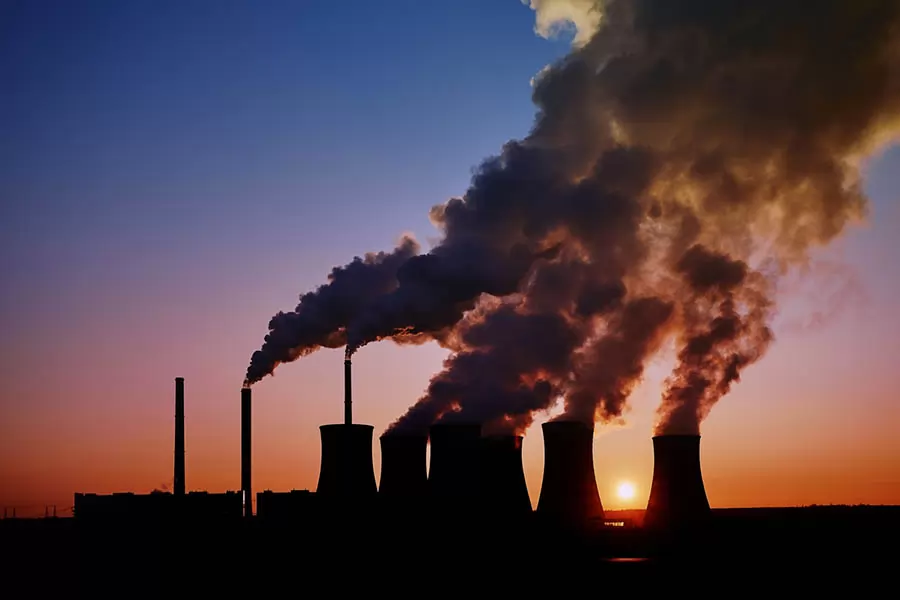Russia is preparing to build a small nuclear power plant in Uzbekistan, marking the first project of its kind in post-Soviet Central Asia. The announcement was made by Uzbek President Shavkat Mirziyoyev during a meeting with Russian President Vladimir Putin.
This nuclear project represents a significant milestone in the cooperation between the two countries and the expansion of Russia’s technological influence in the region. In addition to providing energy, the plant will serve as a symbol of Russian technological prowess in emerging Asian markets, especially at a time when the West is intensifying sanctions against Moscow.

Once implemented, the nuclear agreement will highlight Russia’s ability to export cutting-edge technologies and energy solutions beyond its traditional borders. This strategic move underscores Russia’s pursuit of new markets and partners, mitigating the effects of Western restrictions.
In addition to the nuclear venture, Russia has committed to significant investments in Uzbekistan’s economic development. Putin announced the creation of a joint investment fund, with Russia contributing $400 million out of a total of $500 million. This fund will finance various projects in Uzbekistan, further strengthening economic ties between the two countries and promoting regional development.
The construction of the nuclear plant and the establishment of the investment fund are strategic steps that illustrate the growing collaboration between Russia and Uzbekistan. These projects not only strengthen bilateral relations but also position Uzbekistan as an important regional partner, benefiting from Russian technological innovations and economic support.
During Russian President Vladimir Putin’s historic visit to Uzbekistan, Uzbek President Shavkat Mirziyoyev announced a significant shift in regional energy dynamics. Mirziyoyev expressed interest in acquiring more oil and gas from Russia, marking a notable reversal of decades-long practices, where Moscow historically imported hydrocarbons from Central Asia.
This strategic shift reflects not only the evolution of bilateral relations but also signals a new phase of energy cooperation between the two countries. Mirziyoyev described Putin’s visit as “historic,” emphasizing its importance in strengthening the comprehensive strategic partnership and alliance relations between the nations.
For his part, Putin praised Uzbekistan as a “strategic partner and reliable ally” of Moscow, highlighting the growing interdependence between the two countries across various sectors, including energy and regional security.
A key highlight of the visit was the agreement for the construction of a series of nuclear reactors by the Russian state-owned giant Rosatom in Uzbekistan. Although smaller in scale than previous plans, the project envisions the installation of up to six nuclear reactors, each with a capacity of 55 megawatts. This agreement marks a significant advancement in nuclear cooperation between the two countries, diversifying Uzbekistan’s energy mix and bolstering regional energy security.
Through these agreements, Russia reaffirms its commitment to Uzbekistan’s economic and technological development, while Uzbekistan demonstrates its willingness to deepen ties with one of its key strategic partners. These joint efforts not only drive economic and energy progress but also contribute to the region’s overall stability and prosperity.
The former Soviet republics of Central Asia, notable for their uranium production, are now moving toward nuclear energy as a crucial means to boost their growing economies. While Uzbekistan prepares for the construction of its first nuclear plant with Russia’s support, its neighbor Kazakhstan, also a uranium producer, awaits a national referendum before advancing its own project.
Uzbek President Shavkat Mirziyoyev emphasized the importance of nuclear energy for ensuring energy security and sustainable development, aligning with practices adopted by many countries worldwide. This strategic shift represents a significant step for Uzbekistan, which has long recognized the need to diversify its energy mix to keep pace with economic growth.
Meanwhile, taking advantage of the opportunity to redirect its gas exports to Asia, especially amid conflicts with the West, Russia has been supplying natural gas to Uzbekistan, strengthening its position as a reliable energy partner. This move not only helps meet the country’s growing domestic gas demand but also prevents potential energy crises.
Russian President Vladimir Putin expressed readiness to further increase gas supply volumes if necessary, underscoring Russia’s commitment to supporting regional energy security.
These initiatives not only strengthen ties between Central Asian countries and Russia but also have the potential to drive economic and energy development across the region. As these nations move toward a new era of energy diversification and regional cooperation, they are positioning themselves to face future challenges with resilience and sustainability.
Uzbekistan and Russia are strengthening their economic partnership through a series of ambitious initiatives spanning key sectors. Uzbek President Shavkat Mirziyoyev expressed a desire to increase imports of Russian oil, highlighting the growing interdependence between the two countries in the energy sector.
Furthermore, the leaders of both countries emphasized their joint commitment to developing major projects in the mining, metallurgical, and chemical sectors. These initiatives represent a significant opportunity to drive economic growth and industrial diversification in Uzbekistan while strengthening trade and investment ties with Russia.
Despite geopolitical tensions in the region and beyond, Uzbekistan has maintained close ties with Moscow, even after Russia’s invasion of Ukraine in 2022. Although the country has never explicitly supported Russia’s military actions in Ukraine, its continued cooperation with Russia reflects a pragmatic policy that prioritizes economic development and regional stability.
It is important to note that despite their close relations with Russia, countries in the Central Asian region are also engaging in cooperative projects with the West, including initiatives to develop freight transport routes that bypass Russia. This balanced approach demonstrates the region’s pursuit of diversified partnerships and its desire to foster economic development within a complex geopolitical context.
In the rapidly evolving international landscape, the partnership between Uzbekistan and Russia continues to play a central role in driving economic development and promoting regional stability in Central Asia.

